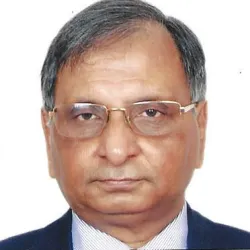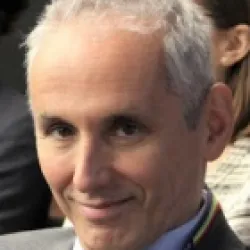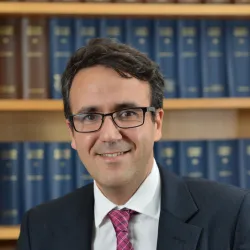2020 Macro-prudential Policy: Implementing the Financial Stability Mandate
Macro-prudential Policy: Implementing the Financial Stability Mandate
Macro-prudential Policy: Implementing the Financial Stability Mandate
November 09 - 10
Course Chair: Maria Nieto, Advisor in the Directorate of Financial Stability, Regulation and Resolution, Bank of Spain
How should a systemic approach to financial stability be applied in firstly the Covid-19 era and secondly the FinTech era? What does it take to design, implement and enforce an effective framework for a sustainable, robust and resilient ecosystem? And is the macro-prudential toolkit flexible enough to adapt to environmental considerations?
These are just some of the questions that financial stability experts and financial supervisors face when addressing systemic risks in the global financial system. A truly global crisis, Covid-19 can offer many learnings for managing financial stability. And the risks and demands do not stand still. Technology is changing not just markets but the way supervisors and financial stability experts work. Environmental, Social and Governance (ESG) is increasingly identified as an important factor in the rapidly changing and dynamic global financial system.
This course, “Macro-prudential Policy: Implementing the Financial Stability Mandate” is designed to equip central bankers to meet these challenges.
Agenda
Participants will have access to pre-recorded presentations two weeks before the course
Climate risks as the new source of systemic instability
Pre-recorded presentation
00:00 - 00:30
- Implications of climate change for the stability of financial systems
- Overview of key transition, physical and liability risks
- The role of financial policy and regulation in effective climate risk mitigation
- Hands-on exercise: Application of supervisory tools and prudential responses
María J. Nieto (PhD) is a Visiting Senior Fellow at the London School of Economics (Grantham Research Institute), Member of EBI and former Senior Advisor at Bank of Spain. She is author of numerous peer-reviewed articles (Journal of Banking and Finance, Journal of Financial Stability, Journal of International Financial Markets, Institutions and Money among others). She has cooperated as advisor with the International Monetary Fund and the Federal Reserve Bank of Atlanta for over 10 years and she serves on the advisory boards of the Journal of Financial Regulation and Compliance, the Journal of Financial Regulation, the Central Banking Training Advisory Board (UK) and the Institute of International Monetary Economics (UK). She has a PhD from University Complutense de Madrid, an MBA in finance from the University of California, Los Angeles (UCLA), and is a Certified Public Accountant (CPA)
BigTech: the new focus of regulatory attention
Pre-recorded presentation
00:00 - 00:30
- Characteristic features of the BigTech sector and entities
- Impact and implications of BigTech for the financial services and technology providers
- Overview of local and cross-jurisdictional efforts focused on regulation and supervision of BigTech
- Discussion: who are the BigTechs in the delegates’ home jurisdictions?
Anand Sinha joined the Reserve Bank of India (RBI) in July 1976 and became deputy governor in January 2011. He was adviser in RBI up to April 2014 after demitting the office of deputy governor in RBI on January 18, 2014. As deputy governor, he was in charge of regulation of commercial banks, non-banking financial companies, urban cooperative banks and information technology, among others. He has represented the RBI in various Committees/Groups of the Bank for International Settlements (BIS), was on the G20 Working Group on Enhancing Sound Regulation & Strengthening Transparency and also a board member of the Securities and Exchange Board of India. He holds master’s degree in physics from the Indian Institute of Technology, New Delhi.
Making the most of Big Data and advanced analytics in macro-prudential analysis
Pre-recorded presentation
00:00 - 00:30
- Big Data for Central Banks
- Opportunities and challenges
- Examples for systemic risk and macro-prudential analysis
Stefano Borgioli is a Senior Team Lead - Economist-Statistician in the Monetary & Economic Statistics Division of the Directorate General Statistics of the European Central Bank (ECB). He joined the ECB in April 1999 after 3-year working experience as an economist in the Macro-Prudential Department of Banca d’Italia. He had temporary stints in both the Directorate General Macroprudential Policy & Financial Stability and the Directorate General Economics of the ECB.
He has worked extensively on banking statistics, statistics for macroprudential analysis and financial integration. He published in these areas and he frequently gives lectures at Universities (Politecnico di Milano, University of Florence, University of Frankurt).
Formulation of macro-prudential policies: coordination and calibration
Presentation followed by Q&A
00:00 - 01:00
- Key steps for the effective design of macro-prudential policy
- Tips for effective coordination and calibration of policy tools and instruments
- Examples of technical and institutional limitations and how to overcome them
- Discussion: Formulation of macro-prudential policy in the delegates’ jurisdictions
John Fell
Deputy director general, macro-prudential policy and financial stability
European Central Bank
John Fell is Deputy Director General for Macroprudential Policy & Financial Stability in the ECB. He is also the chair or co-chair of several international working groups - including the Eurosystem’s Macroprudential Policy Group (MPPG), the European Systemic Risk Board’s (ESRB) Instrument Working Group (IWG), and the ESRB’s task force on stress-testing. He is a member of the ECB’s Financial Stability Committee (FSC), the ESRB’s Advisory Technical Committee (ATC), and the Financial Stability Board’s Standing Committee on Assessing Vulnerabilities (SCAV). He led the stress-testing work for the ECB’s “comprehensive assessment” in 2014 as well as EU-wide banking sector stress-tests coordinated by the Committee of European Banking Supervisors (CEBS) (2009, 2010) and the European Banking Authority (EBA) (2011, 2014). His crisis management experience is extensive, including negotiating EU/IMF financial assistance programs in several euro area countries (e.g. in Ireland, Portugal and Spain). Between 2003 and 2010, he was Head of the ECB’s Financial Stability Division, spearheading the inaugural issue of the ECB’s Financial Stability Review in 2004 and directing it thereafter. Before moving to the financial stability area in 2003, he was an Adviser in the ECB’s Monetary Policy Directorate. Prior to joining the ECB in 1998, as a principal economist, he held various positions at the European Monetary Institute (EMI) and the Central Bank of Ireland. John holds postgraduate degrees in Economics (1987) and in Finance (1993) from University College Dublin and Dublin City University respectively, and is a PhD candidate at the Rotterdam School of Management, Erasmus University. He has published his research in several academic and policy journals.
Times in GMT
11:00 – 11:30
Course introduction
Opening remarks with the course chair
00:00 - 00:30
- Introduction of the chairman
- Overview of the training course
- Discussion of the delegate expectations
11:30 – 12:30
Financial sector stability analysis, policies, and institutions
Presentation followed by Q&A
00:00 - 01:00
- Identification and evaluation of vulnerabilities and systemic effects
- Microprudential, macroprudential, and crisis management capacity
- Banks and nonbanks in an open economy
- Example: the 2019 Korea Financial Sector Assessment Program
Daniel C. Hardy is currently a Senior Research Associate at the Vienna Institute for International Economic Research, and a consultant on economic policy issues. He spent many years at the International Monetary Fund, leading work on macroeconomic and financial sector surveillance; Fund-supported programs; Fund policies; and technical assistance in a wide range of industrialized, emerging market, and developing countries. Most recently he was head of the Debt Capital Markets Division and led numerous FSAPs. He has also held positions at the Deutsche Bundesbank and the Austrian Financial Market Authority, and been an academic visitor at St. Antony’s College, Oxford, and the Vienna University of Economics and Business. His recent research has addressed topics in public sector governance; the functioning of the European Monetary Union and the Capital Market Union; and sovereign debt management. He studied at the universities of Oxford and Princeton.
12:30 – 12:45
Break
00:00 - 00:15
12:45 – 13:45
Macro-prudential policies: Policy responses to Covid-19
Presentation followed by Q&A
00:00 - 01:00
- Tips for effective coordination and calibration of macro- and micro-prudential policy
- Implications for institutional arrangements and organisation
- Examples of mechanisms for a continuous exchange of information for conflict resolution
- Case study: Macro- and micro-prudential supervision in a Covid-19 era
John Fell
Deputy director general, macro-prudential policy and financial stability
European Central Bank
John Fell is Deputy Director General for Macroprudential Policy & Financial Stability in the ECB. He is also the chair or co-chair of several international working groups - including the Eurosystem’s Macroprudential Policy Group (MPPG), the European Systemic Risk Board’s (ESRB) Instrument Working Group (IWG), and the ESRB’s task force on stress-testing. He is a member of the ECB’s Financial Stability Committee (FSC), the ESRB’s Advisory Technical Committee (ATC), and the Financial Stability Board’s Standing Committee on Assessing Vulnerabilities (SCAV). He led the stress-testing work for the ECB’s “comprehensive assessment” in 2014 as well as EU-wide banking sector stress-tests coordinated by the Committee of European Banking Supervisors (CEBS) (2009, 2010) and the European Banking Authority (EBA) (2011, 2014). His crisis management experience is extensive, including negotiating EU/IMF financial assistance programs in several euro area countries (e.g. in Ireland, Portugal and Spain). Between 2003 and 2010, he was Head of the ECB’s Financial Stability Division, spearheading the inaugural issue of the ECB’s Financial Stability Review in 2004 and directing it thereafter. Before moving to the financial stability area in 2003, he was an Adviser in the ECB’s Monetary Policy Directorate. Prior to joining the ECB in 1998, as a principal economist, he held various positions at the European Monetary Institute (EMI) and the Central Bank of Ireland. John holds postgraduate degrees in Economics (1987) and in Finance (1993) from University College Dublin and Dublin City University respectively, and is a PhD candidate at the Rotterdam School of Management, Erasmus University. He has published his research in several academic and policy journals.
13:45 – 14:00
Break
00:00 - 00:15
14:00 – 15:00
The emerging sources of financial instability for 2021 and beyond
Presentation followed by Q&A
00:00 - 01:00
- Overview of short-term and long-term threats to financial stability
- Assessment of reports, frameworks and approaches by global authorities including the IMF, Basel Committee and the United Nations
- Key expectations in relation to financial stability implications of climate, cyber and technology risks
- Discussion: what are the ‘most feared’ sources of financial instability in delegates’ home jurisdictions for 2021 and beyond?
A central banker for more than three decades and half, he was the Executive Director in charge of Supervision & SupTech of RBI. He had earlier held the position of Principal Chief General Manager of Risk Monitoring Department of RBI, and the Head of the Reserve Bank Staff College, Training Institute of senior central banking professionals of RBI, at Chennai. He was the Head of Financial Stability Unit in RBI and had advised Central Bank of Oman in setting up of their Financial Stability Department, post-crisis. He was RBI’s Regional Director for the States of Jharkhand & Uttar Pradesh. His professional expertise hinges on Bank Regulation/Supervision, Financial Stability - Macro-Financial Surveillance and Risk Mitigating Mechanics in Banking and Central Banks. He has been RBI’s Nominee with the Analytical Group on Vulnerabilities and the Supervisory & Regulatory Co-ordination Committee at the Financial Stability Board. He was the RBI’s Nominee in NABARD’s Board of Supervision and Director in Punjab national Bank and Indian bank.
He is a Chattered Associate of Indian Institute of Banking & Finance (CAIIB) and an awardee of the Golden Jubilee Scholarship of RBI and the Diamond Jubilee Fellowship of Indian Institute of Banking and Finance (IIBF).
15:00 – 15:00
End of day 1
00:00 - 00:01
Times in GMT
11:00 – 12:00
The central credit register and effective calibration of macro-prudential instruments
Presentation followed by Q&A
00:00 - 01:00
- Overview of central credit registers as micro- and macro-prudential tools
- Examples of credit register data applications for detecting risk build-up and concentration
- Tips for calibration of macro-prudential instruments and assessment of their effectiveness
- Case study: building a new central credit register framework
Selva Bahar Baziki
Director, banking and financial institutions department
Central Bank of the Republic of Turkey
12:00 – 12:15
Break
00:00 - 00:15
12:15 – 13:15
Debt restructuring in the Covid-19 era: A reassessment of insolvency procedures
Presentation followed by Q&A
00:00 - 01:00
Rodrigo Olivares-Caminal is a Professor in Banking and Finance Law at the Centre for Commercial Law Studies (CCLS) at Queen Mary University of London. Prior to joining CCLS he was a Senior Lecturer in Financial Law and the Academic Director at the Centre for Financial and Management Studies (SOAS), University of London and the School of Law, University of Warwick. He taught in undergraduate and postgraduate courses in various Schools of Law and Business Schools in the United Kingdom, Spain, Greece, France and Argentina as well as in professional training courses in Africa, Asia and Europe. He has acted as a Sovereign Debt Expert for the United Nations Conference on Trade and Development (UNCTAD), Senior Insolvency Expert for the World Bank / IFC and as a consultant to several multilateral institutions in Washington DC and Europe, Central Banks and Sovereign States as well as in several international transactions with Law Firms. He specialises in international finance and insolvency law. He is the author/editor of seven books and has extensively published in peer-reviewed journals. He sits in the editorial/advisory board of several law journals in the UK and US and is a member of national and international institutions and associations specialised in comparative commercial and insolvency law.
13:15 – 13:30
Break
00:00 - 00:15
13:30 – 14:30
Systemic stress testing: new tools and frameworks
Presentation followed by Q&A
09:00 - 10:30
- The evolving role of systemic stress-testing in financial stability assessment
- Building blocks of an effective macro/micro stress testing framework
- Stress test design for Corona times
-
Discussion: Is Covid-19 prompting a reassessment and new approaches?
Jérôme Henry
Principal adviser, macroprudential policy and financial stability
European Central Bank
Jérôme Henry is the principal adviser in the European Central Bank (ECB) macroprudential policy and financial stability division. His responsibilities cover financial stability assessments and the related infrastructure requirements. Henry has led ECB teams for quality assurance of the single supervisory mechanism stress tests and was involved in country crisis management. He also worked at the Bank for International Settlements as a Financial Stability Institute fellow. Prior to this, Henry was a long-standing Eurosystem forecast co-ordinator. He started his time at the ECB leading the macromodelling team. Prior to his central bank career, Henry conducted research at the French Economic Observatory and the French National Institute of Statistics and Economic Studies. He is a founding member of the Centre for Economic Policy Research Euro Area Business Cycle Network. An Ensae Paris graduate, Henry holds a PhD in Economics and a bachelors degree in History from Paris Sorbonne.
14:30 – 14:45
Break
00:00 - 00:15
14:45 – 15:15
Networking break
15:30 - 16:00
Post training survey and feedback
00:00 - 00:30
CPE/CPD certificate
00:00 - 00:30
Course alumni group
00:00 - 00:30
Learning outcomes
By the end of the training course, participants will have gained new knowledge and a more comprehensive understanding of:
- Tackling financial stability implications of digital money: CBDCs, stablecoins and crypto assets in focus
- Climate change as an emerging source of systemic risk
- RegTech & SupTech: new opportunities in financial stability and systemic risk analysis
- Global imbalances and financial stability: changing dynamics
- The institutional alignment of macro- and micro-prudential policy
- Systemic stress-testing: the state of the art

Chairperson

Maria Nieto
Advisor in the Directorate of Financial Stability, Regulation and Resolution
Bank of Spain
María J. Nieto is Associate to the Director General, Banking Regulation at Bank of Spain where she has developed different responsibilities in the realm of financial stability and its regulatory framework including crisis management since December 2000. Ms Nieto has been a contributor to the Basel Committee of Banking Supervisors as well as the European Commission, BIS, ECB and OECD. She is author of several articles on banking and regulatory issues that have been published by prestigious journals and member of the Editorial Boards of the Journal of Banking Regulation and the Journal of Financial Regulation and Compliance. She has cooperated as consultant with the IMF and the Federal Reserve Bank of Atlanta and has worked at the ECB, Council of Economic Advisors to the Spanish President, the EBRD and the IMF. Ms Nieto earned a PhD cum laude from the Universidad Complutense de Madrid and a MBA from the University of California Los Angeles.







